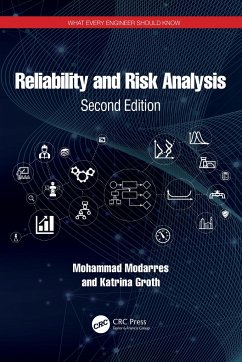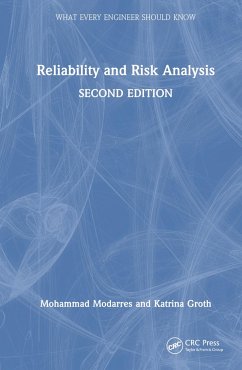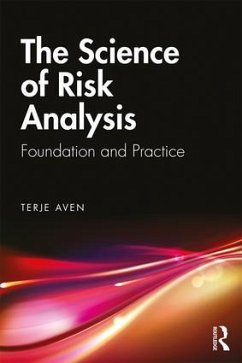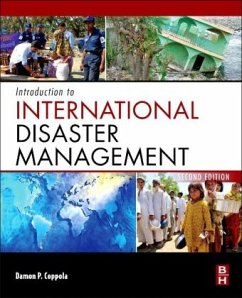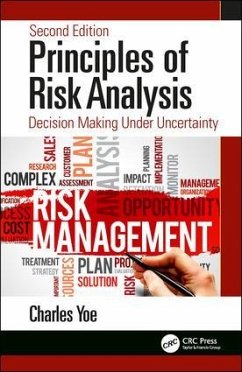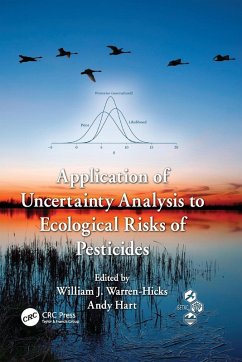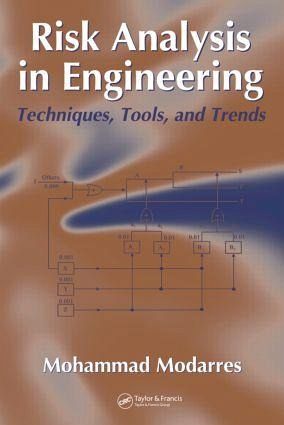
Risk Analysis in Engineering
Techniques, Tools, and Trends
Versandkostenfrei!
Versandfertig in 6-10 Tagen
170,99 €
inkl. MwSt.

PAYBACK Punkte
85 °P sammeln!
Based on the author's 20 years of teaching, Risk Analysis in Engineering: Techniques, Tools, and Trends presents an engineering approach to probabilistic risk analysis (PRA). It emphasizes methods for comprehensive PRA studies, including techniques for risk management. The author assumes little or no prior knowledge of risk analysis on the part of the student and provides the necessary mathematical and engineering foundations. The text relies heavily on, but is not limited to, examples from the nuclear industry, because that is where PRA techniques were first developed. Since PRA provides a be...
Based on the author's 20 years of teaching, Risk Analysis in Engineering: Techniques, Tools, and Trends presents an engineering approach to probabilistic risk analysis (PRA). It emphasizes methods for comprehensive PRA studies, including techniques for risk management. The author assumes little or no prior knowledge of risk analysis on the part of the student and provides the necessary mathematical and engineering foundations. The text relies heavily on, but is not limited to, examples from the nuclear industry, because that is where PRA techniques were first developed. Since PRA provides a best-estimate approach, the author pays special attention to explaining uncertainty characterization.
The book begins with a description of the basic definitions and principles of risk, safety, and performance and presents the elements of risk analysis and their applications in engineering. After highlighting the methods for performing PRAs, the author describes how to assess and measure performance of the building blocks of PRAs, such as reliability of hardware subsystems, structures, components, human actions, and software. He covers methods of characterizing uncertainties and methods for propagating them through the PRA model to estimate uncertainties of the results. The book explores how to identify and rank important and sensitive contributors to the estimated risk using the PRA and performance assessment models. It also includes a description of risk acceptance criteria and the formal methods for making decisions related to risk management options and strategies. The book concludes with a brief review of the main aspects, issues, and methods of risk communication.
Drawing on notes, homework problems, and exams from courses he has taught as well as feedback from his students, Professor Modarres provides a from-the-trenches method for teaching risk assessment for engineers. This is a textbook that is easy to use for students and professors alike.
The book begins with a description of the basic definitions and principles of risk, safety, and performance and presents the elements of risk analysis and their applications in engineering. After highlighting the methods for performing PRAs, the author describes how to assess and measure performance of the building blocks of PRAs, such as reliability of hardware subsystems, structures, components, human actions, and software. He covers methods of characterizing uncertainties and methods for propagating them through the PRA model to estimate uncertainties of the results. The book explores how to identify and rank important and sensitive contributors to the estimated risk using the PRA and performance assessment models. It also includes a description of risk acceptance criteria and the formal methods for making decisions related to risk management options and strategies. The book concludes with a brief review of the main aspects, issues, and methods of risk communication.
Drawing on notes, homework problems, and exams from courses he has taught as well as feedback from his students, Professor Modarres provides a from-the-trenches method for teaching risk assessment for engineers. This is a textbook that is easy to use for students and professors alike.



